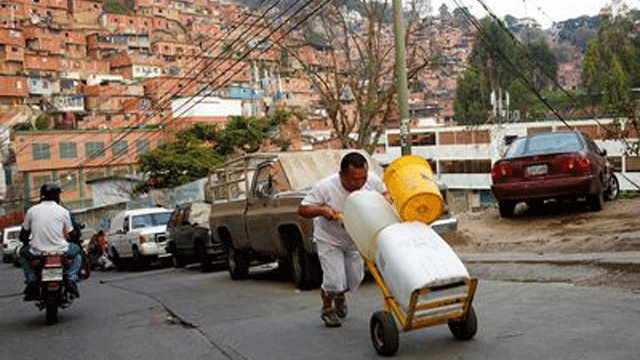Flouting economic laws is a recipe for disaster

by Gavin Keeton
ECONOMICS students are taught that "economics is about allocating the limited resources of societies to meet their unlimited wants". Countries’ resources are never enough for what their citizens desire. So, tough choices are required to determine what they can and cannot consume.
Such choices are unpopular, and history has many examples of societies pretending that this iron economic discipline does not apply to them.
The outcome is always the same: soaring costs and collapsing services, leading to total economic disaster. The consequences are shockingly painful and hardest for the poor, who lack the means to procure essentials from alternative sources.
Venezuela and Zimbabwe are two countries suffering the after-effects of having lived way beyond their means. Life for their citizens is miserable. The International Monetary Fund (IMF) forecasts that Venezuela’s gross domestic product (GDP) will fall 8% this year and 4.5% next year. Inflation will be 480% this year and 1,600% next year. What inflation like this means for everyday life is unimaginable. Outside of war, few countries have experienced economic collapse like this.
The country’s electricity and water supplies have collapsed. Imports of essential goods have ceased because of a lack of foreign exchange. There is widespread shortage of food, medicine, and even beer. Shops have nothing to sell to desperate customers. Venezuela is now reported as having the world’s highest murder rate.
The government’s response has been to introduce a two-day working week for state officials and to urge citizens to raise chickens in their apartment blocks.
State television shows viewers how to bath in a cup of water. Any business that closes because it has no supplies including electricity, is threatened with nationalisation — by a government whose mismanagement of state-owned enterprises caused the crisis in the first place.
Zimbabwe’s economy collapsed almost a decade ago under a tsunami of hyperinflation. It has now, literally, run out of money. Forced into adopting the US dollar as its currency, Zimbabwe no longer has enough US dollar notes for the economy to function. Even at current low levels of economic activity, it still consumes more than it produces and so, imports more than it exports. Scarce US dollars leave the country every month to pay for those imports.
As a result, banks are forced to ration cash withdrawals. Zimbabweans with cash refuse to deposit it with banks because they know they will not be able to withdraw it when needed.
Recently, the Zimbabwe government proposed a solution in the form of "bond notes". These will be clones of the US dollar, limited for use in Zimbabwe.
This highlights the imperative in a modern state of trust and a modicum of good governance. Why can’t Zimbabweans use credit cards and electronic payments instead of cash? Elsewhere in the world, these transactions are commonplace and are increasingly performed on cellphones.
Trouble is, in Zimbabwe no one has faith in the financial and legal institutions on which these methods of payment depend. To function, shop owners must believe that they will be credited with the amounts they transfer to a credit card and that defaulters will be punished. Without this, modern financial systems cannot function. Instead, Zimbabweans resort to methods beyond the control of their failed domestic institutions — such as the use of US dollars and other currencies on the black market, and bartering for physical goods.
Brazil is another country in severe crisis. Thankfully, its economic decline has not been as severe as Venezuela and Zimbabwe. Brazil’s GDP contracted by 3.8% last year and the IMF predicts the same this year and no growth next year. Inflation is about 9%. Economic weakness is threatening to undo the impressive progress made in recent decades in reducing high inequality. Unemployment is climbing rapidly.
Solving these problems is never easy. In Brazil, as in SA, political energies are focused on an allegedly corrupt president and embattled governing party. The huge challenge of rescuing the economy is being ignored. Delay is costly and the biggest price is paid by the poor.
• Keeton is with the economics department at Rhodes University
A man pushes a wheelbarrow loaded with water containers in Caracas, Venezuela. Venezuela and Zimbabwe are suffering after living way beyond their means, says the writer. Picture: REUTERS/CARLOS GARCIA RAWLINS
